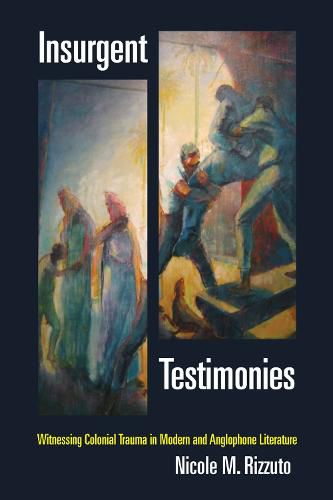Readings Newsletter
Become a Readings Member to make your shopping experience even easier.
Sign in or sign up for free!
You’re not far away from qualifying for FREE standard shipping within Australia
You’ve qualified for FREE standard shipping within Australia
The cart is loading…






During the second half of the nineteenth century and the first half of the twentieth, insurgencies erupted in imperial states and colonies around the world, including Britain’s. As Nicole Rizzuto shows, the writings of Ukrainian-born Joseph Conrad, Anglo-Irish Rebecca West, Jamaicans H. G. de Lisser and V. S. Reid, and Kenyan Ng gi wa Thiong'o testify to contested events in colonial modernity in ways that question premises underlying approaches in trauma and memory studies and invite us to reassess divisions and classifications in literary studies that generate such categories as modernist, colonial, postcolonial, national, and world literatures.
Departing from tenets of modernist studies and from methods in the field of trauma and memory studies, Rizzuto contends that acute as well as chronic disruptions to imperial and national power and the legal and extra-legal responses they inspired shape the formal practices of literatures from the modernist, colonial, and postcolonial periods.
$9.00 standard shipping within Australia
FREE standard shipping within Australia for orders over $100.00
Express & International shipping calculated at checkout
During the second half of the nineteenth century and the first half of the twentieth, insurgencies erupted in imperial states and colonies around the world, including Britain’s. As Nicole Rizzuto shows, the writings of Ukrainian-born Joseph Conrad, Anglo-Irish Rebecca West, Jamaicans H. G. de Lisser and V. S. Reid, and Kenyan Ng gi wa Thiong'o testify to contested events in colonial modernity in ways that question premises underlying approaches in trauma and memory studies and invite us to reassess divisions and classifications in literary studies that generate such categories as modernist, colonial, postcolonial, national, and world literatures.
Departing from tenets of modernist studies and from methods in the field of trauma and memory studies, Rizzuto contends that acute as well as chronic disruptions to imperial and national power and the legal and extra-legal responses they inspired shape the formal practices of literatures from the modernist, colonial, and postcolonial periods.